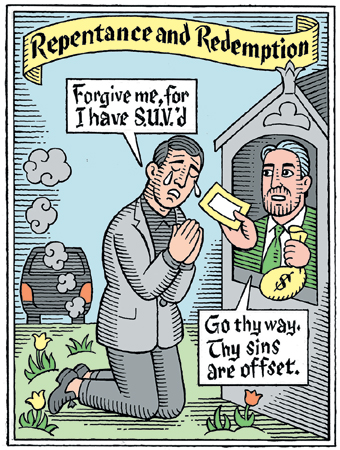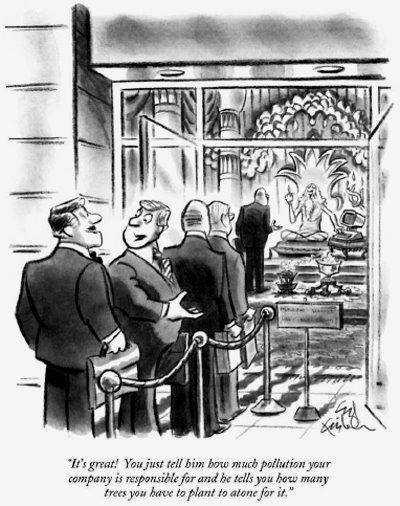From the Friday, 11/21 Washington Post:
The Interior Department wants to revise the application of the Endangered Species Act. The Environmental Protection Agency wants to do the same with the Clean Air Act. If what's being proposed goes through, air quality in and around national parks, and threatened plant and animal species, would be imperiled. President-elect Barack Obama might be saddled with policies that run counter to his environmental vision.
Interior's action on the Endangered Species Act was the result of listing the polar bear in May as "threatened" under that law because of climate change. The statute was never intended to regulate the greenhouse gases that are warming the planet and melting the Arctic ice habitat of polar bears. So Interior Secretary Dirk Kempthorne proposed stripping the Fish and Wildlife Service, the National Marine Fisheries Service and other agencies of their roles in consulting with federal departments on building projects that are "likely to adversely affect" a listed species.
The rationale that their experience complying with the Endangered Species Act gives agencies enough expertise to determine for themselves whether a project is likely to harm a species, not just polar bears, is flawed. Without those protective services in the consultative loop, there will be no check against the ambitions of agencies that want to complete projects -- and no safeguard for threatened and endangered species in the agencies' path.
From Channel 7 KGO-TV (ABC) in San Francisco:
Yes, indeed, brothers and sisters, that may well be, but what Hamilton calls a "disservice" could put us ice bears and hundreds of other natural beings out of our ancestral homes. We're not talking about some minor inconvenience here -- we're talking forced displacement, habitat destruction and eco-cide.SAN FRANCISCO (KGO) -- As the Bush administration was opening up new oil leases in the Arctic last year, government scientist Steven Amstrup was called to Washington to testify on the impact of global warming on polar bear habitats. "Within the next 50 years or so that population of polar bears could decline by approximately two-thirds," Amstrup told the committee.
The chair of the House committee that heard the testimony said the new drilling would further threaten the polar bears. But under changes proposed by the Bush administration, testimony like Amstrup's would be irrelevant. Plans for any project on public lands could be approved without considering the impact on endangered wildlife.
"It's basically saying 'we aren't going to consider science, it's all going to be driven by politics,'" Deputy Executive Director of the Sierra Club Bruce Hamilton said. "To come in at the 11th hour and say, 'oh, we forgot to screw the Endangered Species Act before we leave office, let's make sure we do that...'"Hamilton calls it a disservice to the American public.
President Bush, no thank you! I can't use your eco-fascist groove thang.
As Malcolm X has said, we didn't land on Plymouth Rock, Plymouth Rock landed on us. We animals didn't ask to be discovered, visited, photographed or displaced by you humans. We didn't think destroying the planet's forests, polluting its air, and drilling for oil in ANWR were such great ideas, among others. The least you could do is to leave some pretense of fairness in your environmental laws.
(Yeah, I said it... )
Sincerely,
Fr. Paul R. Bear, PBB (Polar Bear Blogger)
Artic Snowfields
Greenland/North Pole
http://www.carbonconfession.org/
Confess carbon sins -- embrace 12 steps to Carbon Forgiveness
Step #1: admit you are a selfish user of global resources



